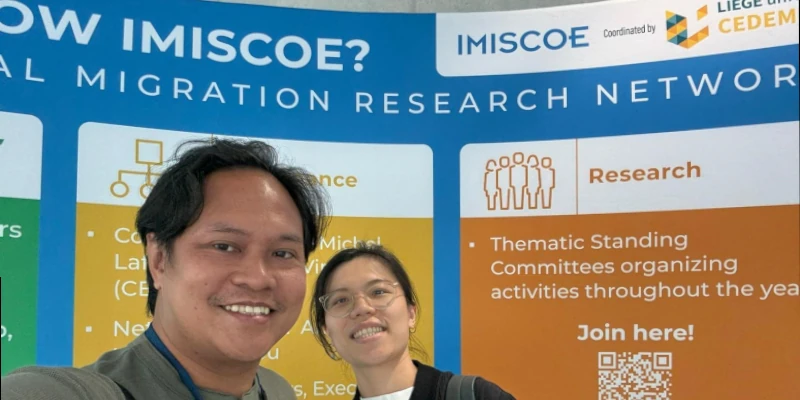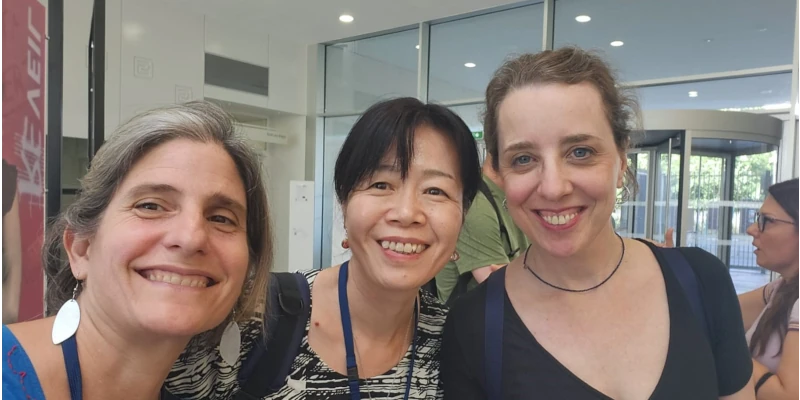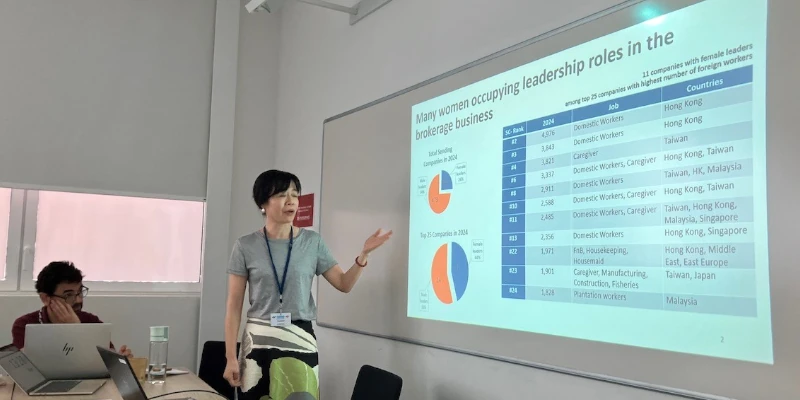News and Events
MIGMOBS @Universidad de Nebrija, Madrid, @Sciences Po, Paris & @IMISCOE Paris 2025

MIGMOBS has had some busy weeks in June and July! Our action shifted to Madrid and then Paris.
 Big thanks to Diego Acosta (Director of the Cátedra Migración y Derechos Humanos, Universidad de Nebrija), Nieves Fernández (Coordinator) and colleagues at the Cátedra, for hosting three days (June 26-28) of intense discussion on collaboration between MIGMOBS and the FREEMOVE project, which has compiled an extraordinary database of free movement regimes and accords globally, that expands our conception of cross-border mobilities at a time when it is assumed wrongly that these are retreat.
Big thanks to Diego Acosta (Director of the Cátedra Migración y Derechos Humanos, Universidad de Nebrija), Nieves Fernández (Coordinator) and colleagues at the Cátedra, for hosting three days (June 26-28) of intense discussion on collaboration between MIGMOBS and the FREEMOVE project, which has compiled an extraordinary database of free movement regimes and accords globally, that expands our conception of cross-border mobilities at a time when it is assumed wrongly that these are retreat.
We then moved to Paris, and Sciences Po, joining the rest of the MIGMOBS team in the city, where we held a follow-up workshop (June 30) to explore further synergies with members of the Centre for Global Mobility Law (MOBILE), directed by Thomas Gammeltoft-Hansen, also including one member of both FREEMOVE and MOBILE, Luuk van de Baaren.
Most of the members of the MIGMOBS research team were able to attend the annual 2025 IMISCOE conference in blisteringly hot Paris (July 1–4). Sadly, one of our team, Kheira Arrouche, was unable to travel because of visa restrictions and bureaucratic problems in Ireland, a continual reminder for us of the core inequalities and injustices explored by our project.
It was, by all accounts, a good IMISCOE, making use of the excellent facilities at the new Condorcet Campus in North Paris.
MIGMOBS presented two panels, The Politics of Gender and Mobility in Women’s Migration in Africa, Asia and Latin America (organised and chaired by Gracia Liu-Farrer, with Glenda Garelli as discussant), and Tracking Mobility and Migration Flows with Big Data: Methodological Challenges, Theoretical Implications (organised and chaired by Ettore Recchi, with invited discussant Mirna Safi, Sciences Po). The full line up of papers was as follows:
The Politics of Gender and Mobility in Women’s Migration in Africa, Asia and Latin America
* Kheira Arrouche, 'Navigating borders: care, intimacy, and resistance in Algeria’s ghettos, maquis, and ngandas' (summary presented in absense by Adrian Favell)
* Meiyun Meng & Adrian Favell, 'Negotiating singlehood through cross-border movements: Chinese female professionals in Tokyo and Seoul'
* Gracia Liu-Farrer, 'Brokering care: Women migration entrepreneurs in Indonesia’s labor migration'
* Ana Paula Penchaszadeh & Natalia Debandi, 'Not your “brown feminism”: The political subjectivation of Venezuelan migrant women in Argentina'
* Pamungkas Dewanto, '“Do not talk about us without us”: Indonesian Women in Transnational Activism in Malaysia'
Tracking Mobility and Migration flows with Big data: Methodological challenges, Theoretical implications
* Ettore Recchi & Tobias Grohmann, 'The evolution of global transnational mobility (1990-2024): constants and variations
* Natalia Debandi, Ana Paula Penchaszadeh, Tobias Grohmann & Ettore Recchi, 'Interpreting regional mobility and migration in Latin America: How institutional, political and economic conditions shape transnational population flows'
Adrian Favell was also Chair on a special panel discussing the 4th edition of Caroline Brettell and James Hollifield's Migration Theory and spoke on a panel on Decentering the Far Right: What can Migration Scholars do in Defense of Movement, Conviviality and Debordering?
Meiyung Meng also presented her paper "State, society and transnational migration: Chinese women's changing aspirations in transforming post-pandemic China".
Our colleague Ana Paula Penchaszadeh summarised her week on Linked-In: "It was an intense and inspiring week of collaborative reflection on global mobility, gendered subjectivities, and data-driven migration studies." We were also able to celebrate Ana's birthday together with her friends and family. All in all, a great conference this year, and we look forward to Liège and Girona next year.

